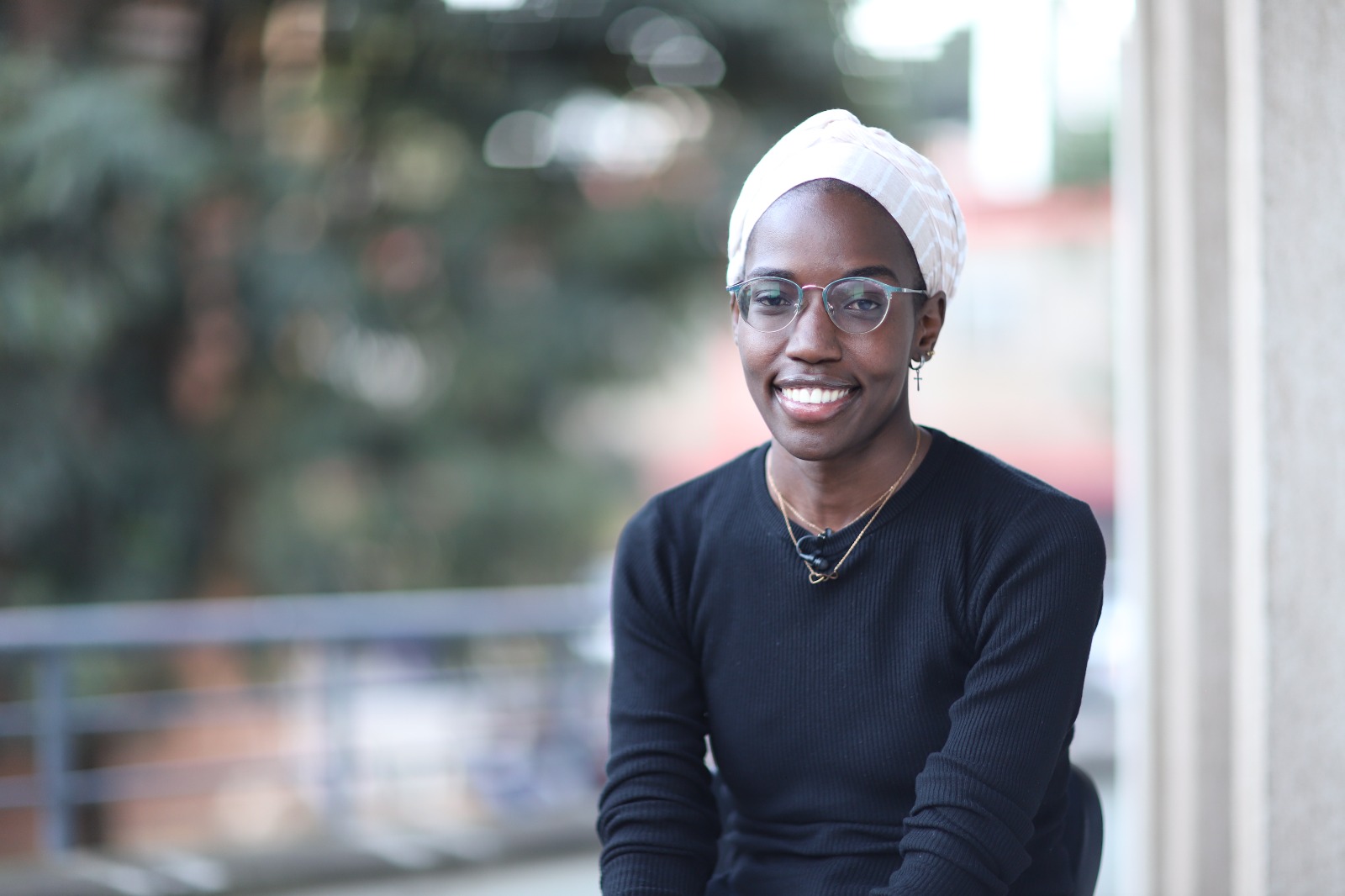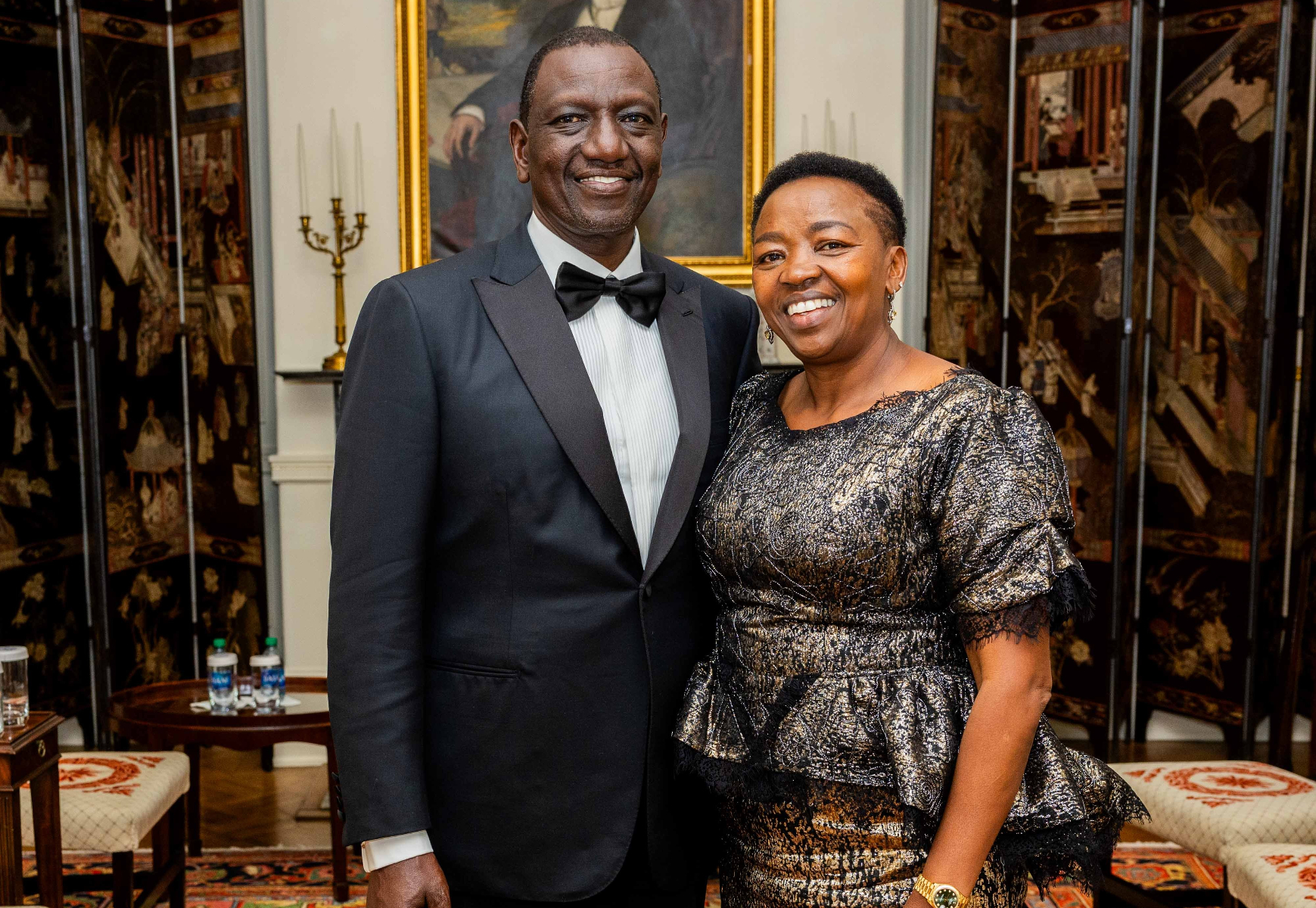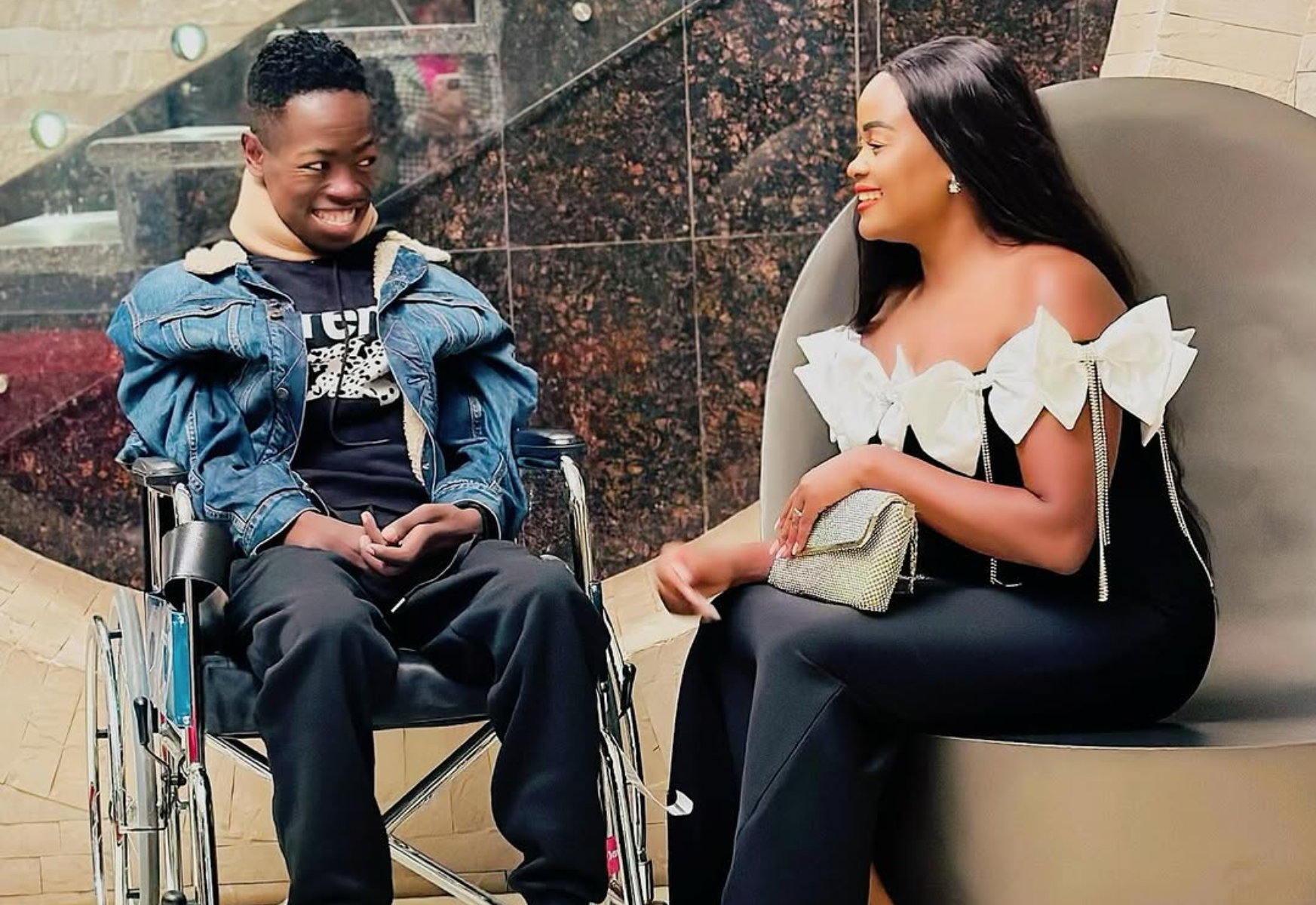Gloria Ondieki is living a life on the edge not knowing whether she will wake up blind the following morning or find herself stranded on the streets of Nairobi unable to maneuver due to loss of eyesight.
With the pending danger in sight, Gloria is still holding onto hope – wearing her bold smile behind oval-shaped clear spectacles, which could easily be construed as someone who is keeping up with the latest trend in town.
But beyond those lenses, lies a heavy and rare condition, a genetic retina dystrophy called bilateral myopic foveoschisis, threatening her eyesight.
Although Gloria appears fine, she has partially lost vision in her right eye, and according to her doctor’s recommendation, her only hope of slowing the progression of her rare eye condition lies in seeking treatment abroad, which would cost her millions of shillings — money she’s unable to raise.
If anything by the doctor’s recommendation is to go by, then Gloria’s only recourse lies across the borders where she has to part with millions of shillings to slow down the rare eye condition.
How it all started
Born on March 22, 1996, Gloria Ondieki was a normal playful kid until she started going to school where the condition started manifesting.
“My condition was first discovered when I was five years old. I was in kindergarten and my teacher realised I could not read the board. So every time she could keep me close to the board and then inform my dad.
“That is the point I was taken to the hospital care and doctors said I would be put on specs,” Gloria said during an exclusive interview with K24 Digital.
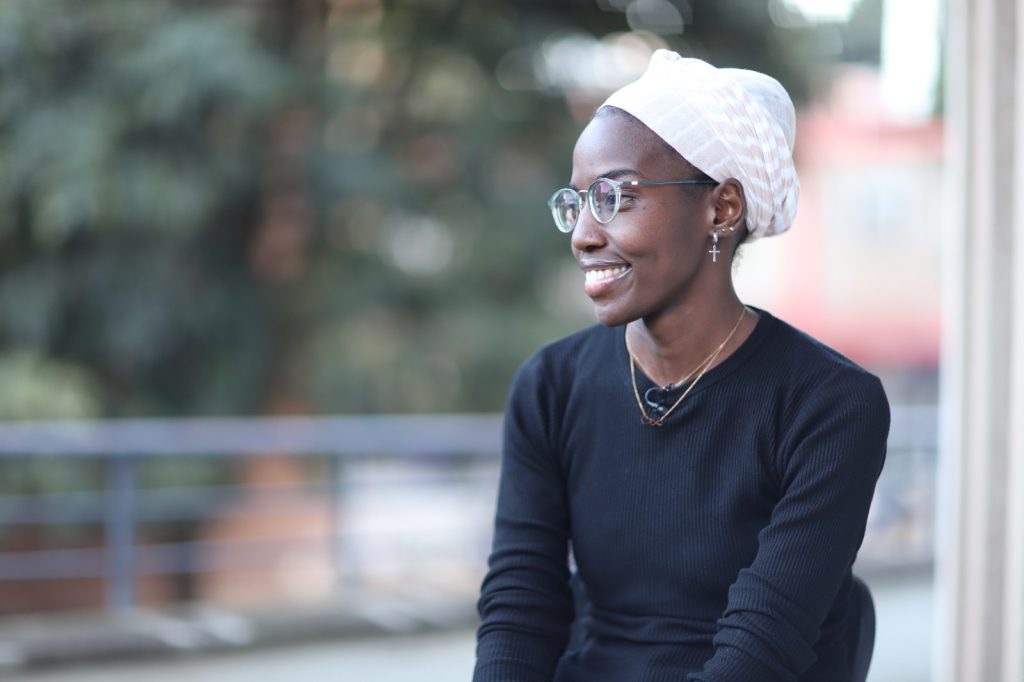

Fresh from optical care and still at a tender age, Gloria was compelled to stomach mockery and doubts from relatives who did not believe that a five-year-old girl was unable to see clearly.
Four years later, the struggle became even more real with symptoms forcing her to move from one specialist to another.
“Every doctor would always say the condition is with the inner part of the eye and that I’d be put on specs for the rest of my life. That is the only thing I knew, but then, they never gave me a diagnosis report,” an emotional Gloria explained.
At the height of the Covid-19 pandemic in 2020, her condition escalated.
‘You are actually losing your eyesight’. This was the statement Gloria received from her optician, a statement that disturbed her inner peace.
Immediately, Gloria, the second-born in a family of five, embarked on a fresh journey of finding help regarding the retina issue.
After several trials and testing, she found an ophthalmologist who understood her condition.
“In September 2022, I was diagnosed with a genetic retina dystrophy called bilateral myopic foveoschisis,” she stated while sharing her medical records.
A consultant ophthalmologist who attended to her and signed the medical record also confirmed her condition in a brief phone interview with K24 Digital. He however did not divulge much details about the condition due to doctor-client confidentiality.
The diagnosis report sent Gloria into denial before plunging her into depression. She was majorly hit because the report indicated that gene testing was needed to establish which gene was mutating, and causing the condition.
However, Kenya lacked the capacity for gene testing when her diagnosis report was released.
Details about the condition
Myopic foveoschisis, also known as myopic traction maculopathy (MTM) or myopic macular schisis, is a relatively rare entity that affects the eyes.
Patients with this rare condition often present a gradual, painless diminution of vision in either one or both eyes.
Specialists may first notice diffuse atrophic patches in the retina, which appear whitish-yellow. In some instances, they may pick up shallow macular retinal detachments and macular holes.
The condition, which mostly affects males, was first described by Takano and Kishi in 1999 as a split in the layers of the retina at the fovea in the eyes.
Almost a century later, its treatment has proved futile with only a few countries including the US, UK and India providing viable options.
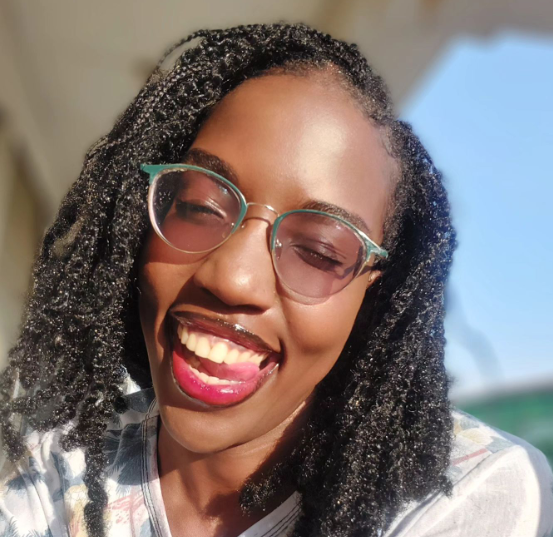

In Kenya and throughout Africa, there is little research published on this condition forcing most patients to seek help abroad.
Myopic foveoschisis accounts for about 0.1 per cent of the world population and the first successful treatment was conducted in the US.
In another case, an elderly female patient with bilateral high myopia and pre-existing myopic foveoschisis underwent uncomplicated sequential cataract surgeries 2 weeks apart. She was able to achieve a satisfactory visual outcome for her left eye with stable myopic foveoschisis and visual acuity of 6/7.5.
Gloria’s treatment
After going through the denial stage and overcoming depression, Gloria got back to her feet and commenced the process of finding a solution to her diagnosis. She established contacts with various facilities and doctors to find a viable option for remedying her condition.
However, after proper consultation with six retina specialists in Kenya, she chose the Massachusetts Eye and Ear Hospital in the US, which she argues appears pocket-friendly, but still beyond her reach.
For evaluation, Gloria, a Pwani University graduate, is required to raise around Ksh3.5 million then another Ksh400 million for treatment.
“The Massachusetts Eye and Ear Hospital sent me their evaluation cost and initial deposit which they said could go up to Ksh3.5 million.
“Treatment alone is between Ksh320 million and Ksh400 million and it can take years because gene treatment is administered in doses like a vaccine.
“The US was a better option because they were saying that if I’m not viable for treatment, they could put me on a clinical trial,” she explained.
Fundraiser and losing eyesight
Hoping to regain her full eyesight, Gloria launched an online fundraiser and managed to raise Ksh400,000.
However, she was forced to halt the online fundraising push after receiving opposition from some of her family members.
She says that some of them raised doubts about her condition and insisted that it could be pretence. Some told her that they could not see cataracts in her eyes.
Her mental status took another nose dive, forcing her to stop the fundraise which was majorly supported by her friends.
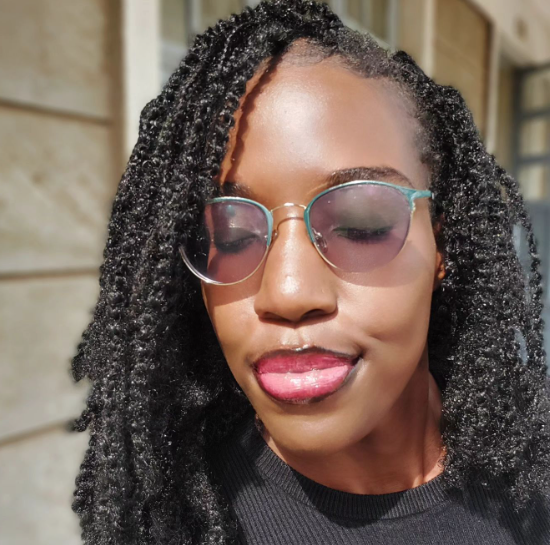

“I told myself that I am going to lock that money in the bank and just focus on other things and hope for a miracle. In the beginning of this year, my cousin told me that I needed to get that treatment because when my file was closed in September 2022, the doctor instructed me to try and get the necessary treatment within two years.
“Around August this year, it really hit me hard that the time has lapsed and I have not found any help. Right now, my right eye does not see.
“So my cousin asked me If I was ready to face life again. So I told her that I was ready to try it but without pressure. Another cousin suggested that I should seek help from the government, but the bigger question was, how?” She posed, revealing that someone even asked for sexual favours in order to help her get help from the government.
Holding firmly on to the healing energy, she now uses her free time to create awareness about different eye problems.
Her father’s appeal
Her condition has taken a toll on her family.
She comes from a family of five, but her elder sister was massively hit as she did not believe that the situation could hit a rock bottom to an extent of rendering her partially blind.
Gloria also feels that her dad who is a Primary School teacher is financially constrained.
However, Shadrack Moturi, Gloria’s father, is also holding onto hope that well-wishers will come through and support her daughter to get a second chance of living a normal life.
Moturi who resides in Nyaribari Masaba Constituency in Kisii County, told K24 Digital that he has exhausted all the viable options including taking loans to support Gloria.
“We are trying to offer her moral and financial support although sometimes we are limited. We are also trying to find ways so that she can get some help. Currently, I have taken loans until my options are exhausted.
“Right now, I am just praying and hoping she gets help because I believe Gloria has great potential. I just wish she gets help from well-wishers or even the government. That would be a great relief to me and the entire family,” Moturi concluded.

